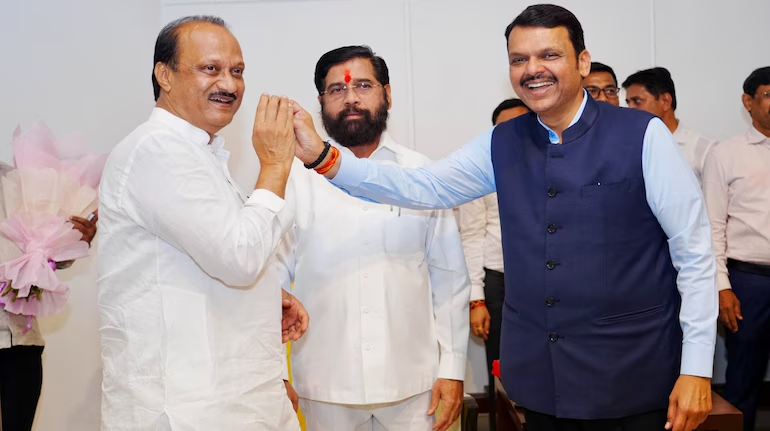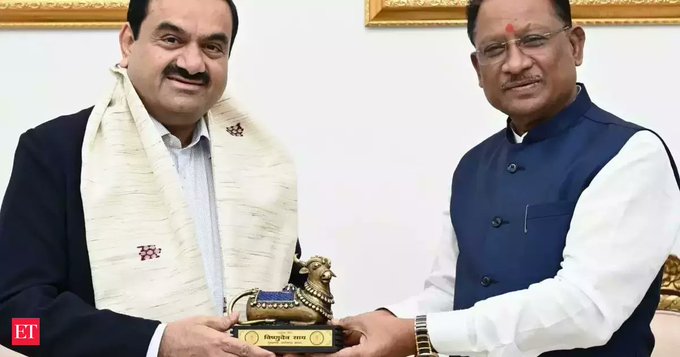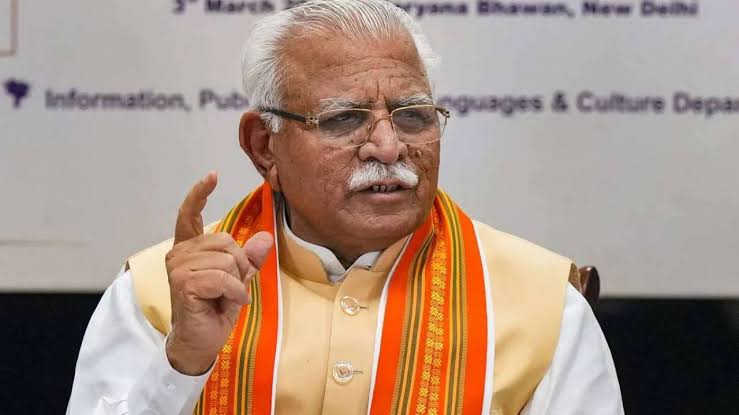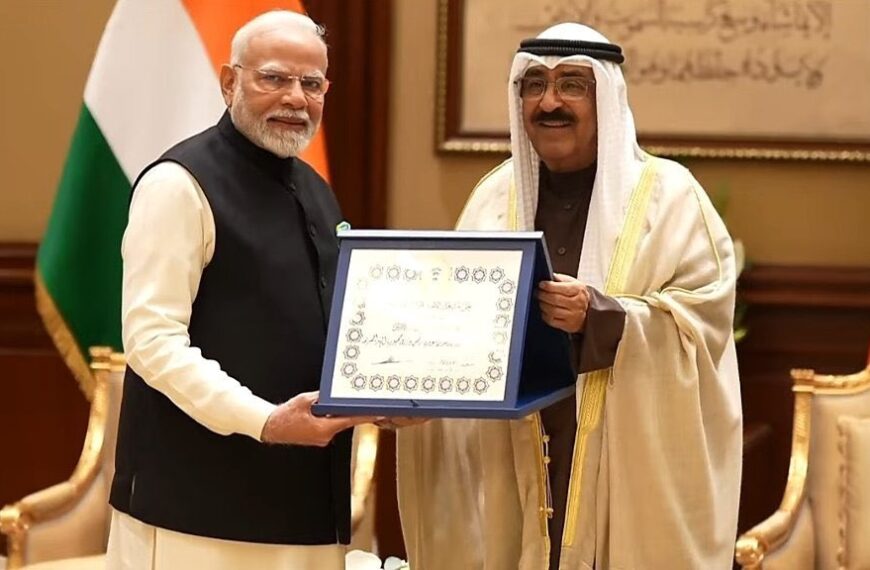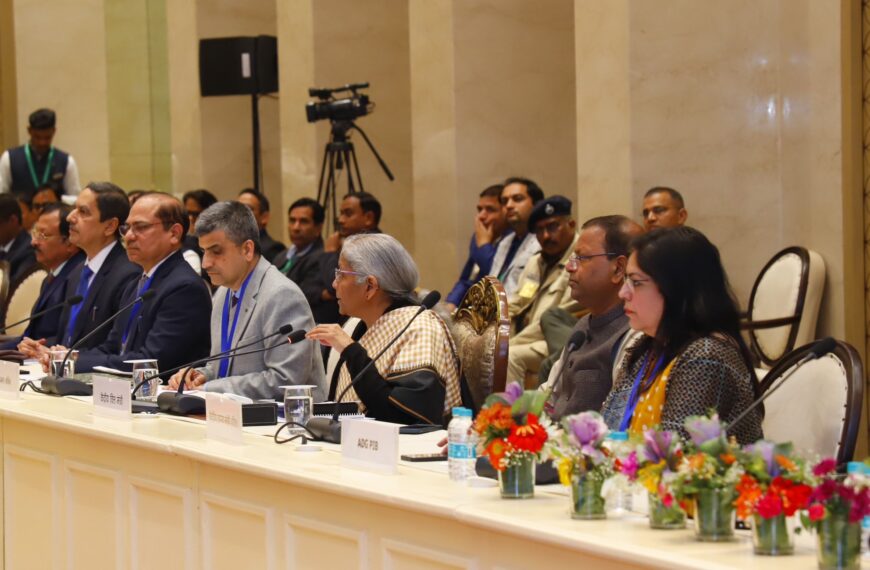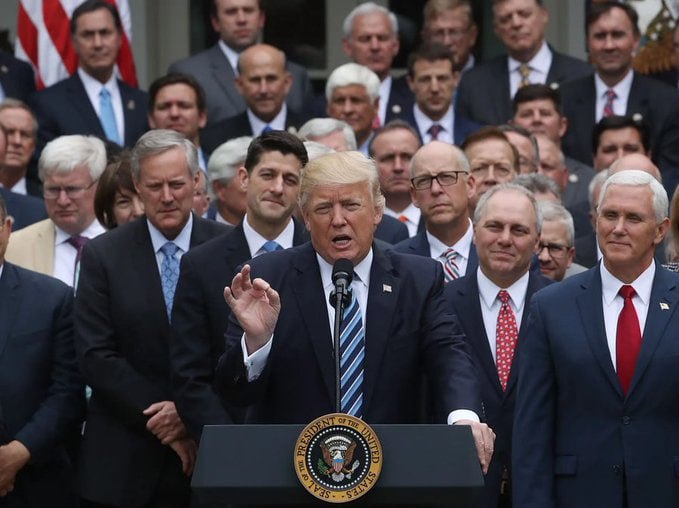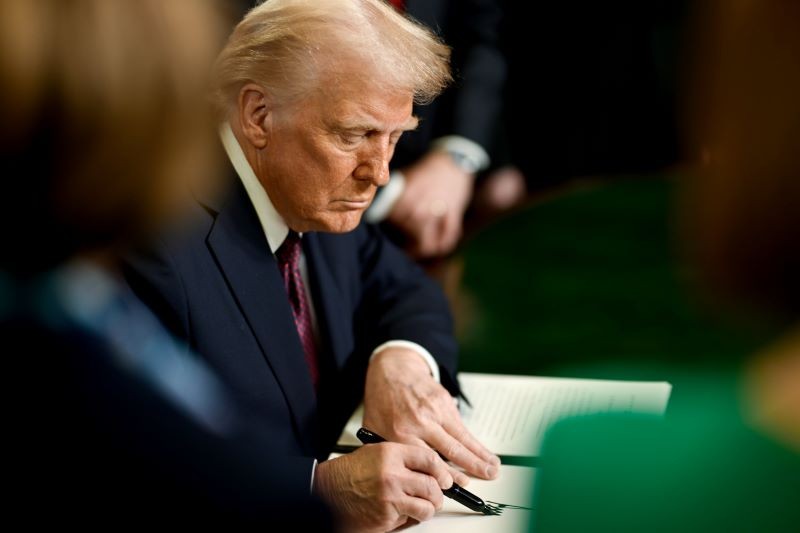Image source: X(Moneycontrol)
The much-anticipated portfolio allocation in Maharashtra’s government was announced late on Saturday night, culminating weeks of intense political negotiations within the BJP-led Mahayuti alliance. This reshuffle follows the December 15 cabinet expansion, which inducted 39 ministers ahead of the winter session. The announcement clarifies the distribution of key responsibilities among the Bharatiya Janata Party (BJP), Shiv Sena, and Nationalist Congress Party (NCP) leaders who make up the coalition government.
Key Portfolio Allocations
Chief Minister Devendra Fadnavis has retained pivotal ministries, including the Home Ministry, Law and Judiciary, Energy (excluding renewable energy), General Administration, and Information & Publicity. This move solidifies Fadnavis’s control over critical administrative and security-related functions in the state.
Deputy Chief Minister Eknath Shinde, a Shiv Sena leader, has been allocated Urban Development, Housing, and Public Works. These portfolios align with Shinde’s experience and reinforce his role in shaping Maharashtra’s urban and infrastructural landscape.
Ajit Pawar, the other Deputy Chief Minister and a key NCP ally, has taken charge of the Finance, Planning, and Excise departments, marking his influence over Maharashtra’s fiscal and economic strategies.
Party-Wise Allocation of Portfolios
BJP Ministers:
- Chandrashekhar Bawankule: Revenue
- Radhakrishna Vikhe Patil: Water Resources – Krishna and Godavari Valley Development Corporation
- Chandrakant Patil: Higher and Technical Education, Parliamentary Affairs
- Girish Mahajan: Water Resources – Vidarbha, Tapi, Konkan Development Corporation, Disaster Management
- Ganesh Naik: Forests
- Mangal Prabhat Lodha: Skill Development, Employment, Entrepreneurship, and Innovation
- Jaykumar Raval: Marketing and Protocol
- Pankaja Munde: Environment and Climate Change, Animal Husbandry
- Atul Save: OBC Welfare, Dairy Development, Renewable Energy
Shiv Sena Ministers:
- Gulabrao Patil: Water Supply and Sanitation
- Dadaji Bhuse: School Education
- Sanjay Rathod: Soil and Water Conservation
- Uday Samant: Industries, Marathi Language
- Shambhuraj Desai: Tourism, Mining, Ex-Servicemen Welfare
- Sanjay Shirsat: Social Justice
- Pratap Sarnaik: Transport
- Bharat Gogawale: Employment Guarantee, Horticulture, Salt Pan Lands Development
- Prakash Abitkar: Public Health and Family Welfare
NCP Ministers:
- Hasan Mushrif: Medical Education
- Dhananjay Munde: Food and Civil Supplies, Consumer Protection
- Dattatrey Bharne: Sports, Youth Welfare, Minority Development, Aukaf
- Aditi Tatkare: Women and Child Development
- Manikrao Kokate: Agriculture
- Narhari Zirwal: Food and Drug Administration, Special Assistance
- Makrand Patil: Relief and Rehabilitation
- Babasaheb Patil: Cooperation
Political Context and Challenges
The portfolio allocation has been a subject of intense negotiation among the alliance partners. Notably, BJP resisted Shiv Sena’s demands for the Home Ministry, emphasizing the party’s determination to retain control over key security and administrative domains.
The Mahayuti alliance’s decisive victory in the November 20 assembly elections, securing 230 out of 288 seats, set the stage for this power-sharing arrangement. However, the delay in finalizing portfolios had sparked speculation about internal disagreements, underscoring the complexities of coalition politics.
Strategic Implications
This allocation reflects a balance of power among the three allies:
- BJP retains dominance over critical departments such as Home, Revenue, and Education.
- Shiv Sena’s control over Urban Development and Housing aligns with its traditional base in Mumbai and other urban areas.
- NCP’s hold on Finance and Agriculture enables the party to influence economic policies and rural development.
The portfolios are expected to shape Maharashtra’s administrative and developmental trajectory in the coming years. With the winter session underway, the ministers now face the dual challenges of addressing pressing state issues and meeting the high expectations of their constituents.
Conclusion
The Maharashtra portfolio allocation marks a significant step in stabilizing the Mahayuti coalition. As the newly appointed ministers take charge, their performance will be closely watched, both by the opposition and the public. The balance of power within the alliance and its impact on governance will likely remain a key topic in Maharashtra’s political discourse.
